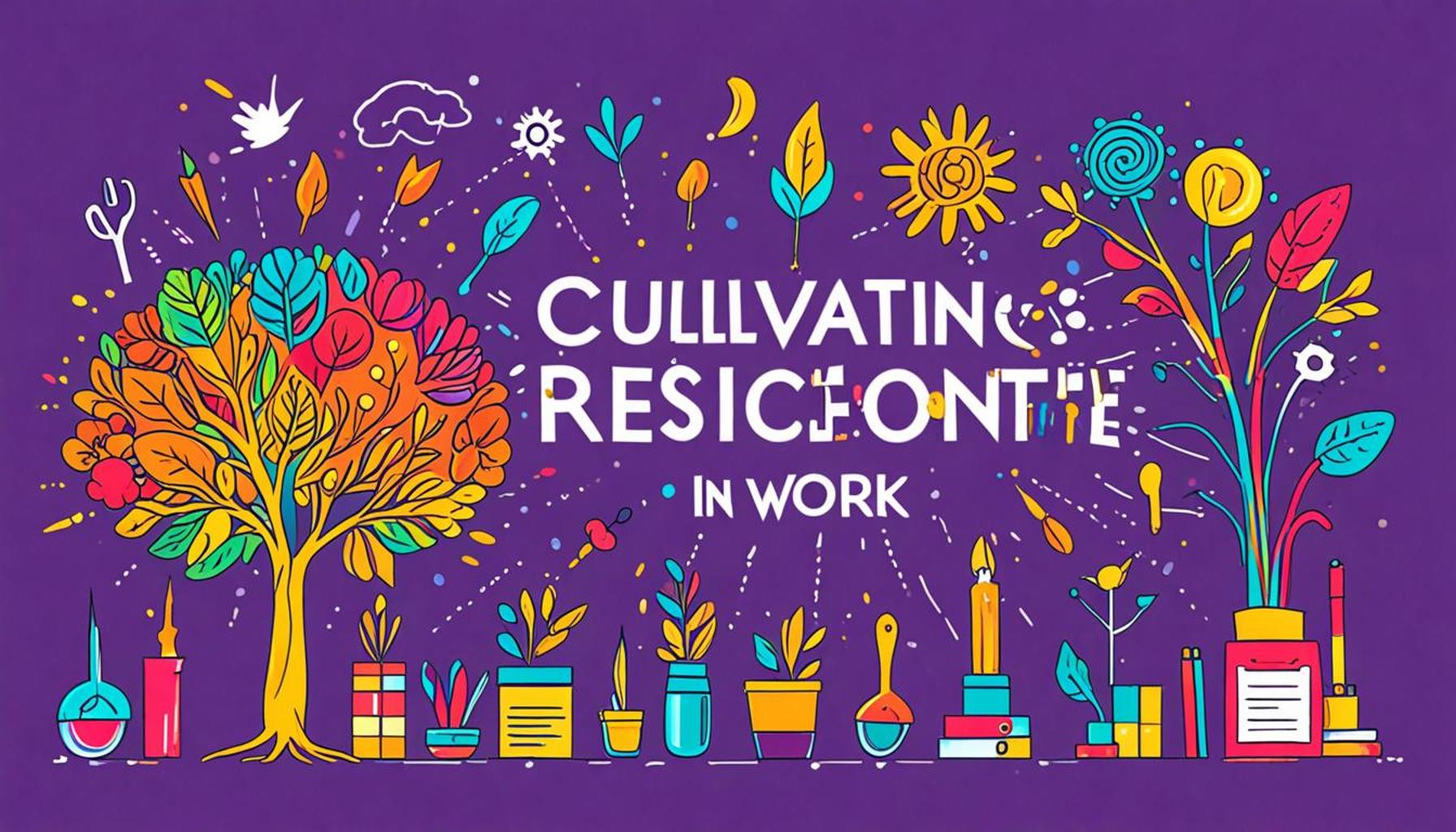Financial Resilience: Applying Growth Mindset Techniques to Overcome Economic Crises

Building a Strong Financial Future
In a world where economic stability can often feel like a distant dream, financial resilience emerges as a critical skill. The ability to adapt, pivot, and thrive during economic upheavals is essential for individuals and communities alike. This article explores how adopting a growth mindset can empower you to navigate these turbulent times.
Why Financial Resilience Matters
Economic crises can arise unexpectedly, impacting the lives of many. In Nigeria, we have witnessed a series of economic challenges that have tested the limits of financial resilience:
- High inflation rates affecting purchasing power. According to the National Bureau of Statistics, Nigeria recorded inflation rates exceeding 20%, which has drastically reduced the ability of individuals and families to afford everyday necessities such as food and housing.
- Unemployment surging due to industry shifts. The COVID-19 pandemic alone saw millions of Nigerians lose their jobs, forcing many to reevaluate their financial stability and seek alternative means of income.
- Small businesses struggling to stay afloat amid financial uncertainties. Many local entrepreneurs have faced dire challenges with supply chain disruptions and dwindling customer bases, leading to increased bankruptcy rates.
To combat these challenges, it is vital to develop strategies that enhance one’s financial resilience. Understanding how to manage personal finances effectively, invest wisely, and prepare for unforeseen circumstances can lay the groundwork for a secure financial future.
Understanding Growth Mindset Techniques
Applying growth mindset techniques can transform how you approach financial challenges. Here are some key aspects to consider:
- Embracing failure as a learning opportunity. Recognizing that setbacks in financial ventures—be it a failed investment or a job loss—can serve as valuable lessons can help you develop more informed strategies moving forward.
- Fostering adaptability and openness to change. In today’s fast-paced economy, having the willingness to adjust your financial goals in response to changing circumstances is crucial. For instance, a tech-savvy individual might consider diversifying their income by exploring freelance opportunities in areas like digital marketing or online tutoring.
- Setting realistic yet ambitious financial goals. This involves creating clear financial objectives that allow for growth. Whether it’s saving a specific percentage of your income each month or investing in education to improve job skills, having a plan can guide you during tough times.
By incorporating these principles, you not only prepare yourself for economic changes but also cultivate a proactive attitude toward your finances.
To further cement your financial future, explore avenues like community workshops on financial literacy, free online resources, or networking with local business champions who can share their experiences and insights. Continue reading to uncover actionable strategies that will build your financial resilience and help you thrive, no matter the economic climate.
SEE ALSO: Click here to read another article
Leveraging a Growth Mindset for Financial Resilience
In confronting the harsh realities of economic downturns, adopting a growth mindset can transform one’s approach to finances and ultimately enhance financial resilience. This approach not only encourages individuals to view challenges as opportunities for growth but also instills a sense of agency in managing personal and collective financial destinies. In Nigeria, where fluctuating economic conditions are commonplace, this mindset can be particularly advantageous in navigating uncertainty.
Key Growth Mindset Techniques for Financial Resilience
The following innovative techniques can empower you to take control of your finances, ensuring that you are better prepared for unforeseen economic shifts:
- Continuous Learning and Skill Development: In an ever-evolving job market, particularly in Nigeria, being adaptable is essential. Many professionals can enhance their employability by learning new skills through online platforms like Coursera or local institutions. This not only boosts potential income streams but also prepares individuals to pivot when industries are in flux.
- Budgeting with Flexibility: Implementing a flexible budgeting system can be a game changer. A well-structured budget allows you to allocate resources efficiently while also providing room for adaptation when financial situations change. For example, if unexpected expenses arise, a flexible budget enables you to make adjustments without derailing your financial goals.
- Diversification of Income Sources: Relying solely on a single income source—especially in a fluctuating economic landscape—can be fraught with risk. Individuals can cultivate financial resilience by exploring multiple streams of income. This could involve starting a side business, engaging in agricultural ventures, or even tapping into the gig economy, which has seen substantial growth in urban areas across Nigeria.
By integrating these growth mindset techniques into your financial strategy, you not only prepare yourself for immediate challenges but also set the foundation for enduring prosperity. Real transformation comes from viewing past financial adversities not as failures, but as stepping stones that contribute to your overall growth.
As we continue this exploration of financial resilience, it’s crucial to consider the broader community context. Engaging in local financial literacy programs and sharing experiences with others can enhance collective financial understanding and resilience. Moreover, adopting a mindset that emphasizes collaboration and knowledge-sharing can significantly impact how communities recover from financial hardships. By investing in community education and resources, we can foster a culture of resilience that benefits all.
Continue reading to discover more actionable strategies for enhancing your financial resilience while incorporating growth mindset principles into your daily life.
| Advantages | Key Features |
|---|---|
| Enhanced Adaptability | Allows individuals to adjust their financial strategies in response to market changes. |
| Improved Decision-Making | Encourages analytical thinking and sound judgment even during tough economic times. |
| Increased Resilience | Fosters a mindset that embraces challenges and learns from failures. |
| Long-Term Financial Growth | Supports strategies that focus on sustainable investments and financial health. |
The integration of Growth Mindset Techniques into financial planning can pivotally transform how individuals tackle economic adversities. Emphasizing enhanced adaptability not only equips one to navigate financial uncertainties but also empowers a proactive approach in seizing opportunities that arise even during crises. Similarly, a growth-oriented perspective sharpens decision-making skills, leading to well-informed choices based on rational analysis rather than fear or panic, which are common during economic downturns.Furthermore, cultivating an attitude of increased resilience is essential. By embracing a mindset that perceives failures as learning experiences, individuals can develop a robust strategy to rebound stronger. Achieving long-term financial growth becomes feasible as this reach for knowledge translates into informed investment choices, fostering not just survival but healthy financial thriving. This combination of strategies encourages a holistic view of personal finance, providing a roadmap for enduring economic upheavals.
SEE ALSO: Click here to read another article
Cultivating Community Resilience Through Collaboration
While individual efforts toward financial resilience are vital, the power of community cannot be overlooked. In Nigeria, where the impact of economic crises often reverberates through communities, fostering a culture of collaboration can dramatically enhance overall financial resilience. By pooling resources and sharing knowledge, communities can create robust safety nets that help individuals and families weather financial storms together.
Creating Support Networks
One practical way to build community resilience is through the establishment of support networks. These can take the form of informal groups among friends, family, or neighbors who come together to discuss financial challenges and share solutions. For instance, regular community meetings can serve as platforms for members to share their experiences, learn from one another, and jointly explore new income-generating ideas. This not only empowers individuals but fosters a spirit of collectivism that can strengthen the overall economic health of the community.
Access to Local Financial Literacy Programs
Financial literacy initiatives, such as workshops or seminars led by local experts, can equip community members with essential knowledge and skills. Engaging with organizations that focus on economic education can provide valuable insights into budgeting, saving, and investment strategies, tailored to the local context. In Nigeria, there have been successful grassroots efforts that demonstrate the positive impact of such programs. For example, initiatives like the Financial Literacy for Youth Program emphasize the importance of financial education among young people, nurturing the next generation of financially savvy individuals.
Encouraging Local Entrepreneurship
Another essential technique for promoting community resilience is encouraging local entrepreneurship. In many Nigerian communities, the success of small businesses not only boosts individual livelihoods but also stimulates local economies significantly. Initiatives like the Small and Medium Enterprises Development Agency of Nigeria (SMEDAN) provide funding, training, and support to budding entrepreneurs, fostering an environment where innovation and self-sufficiency can thrive. By supporting local businesses, communities can establish a network of resilience that buffers against external economic shocks.
Emphasizing Sustainable Practices
Sustainability is another critical aspect of cultivating community resilience. Adopting sustainable financial practices through investments in agriculture, local manufacturing, and renewable energy can reduce dependence on volatile global markets. By encouraging community members to engage in agricultural projects or cooperatives, not only are they building self-reliance but also creating potential income opportunities that can sustain families even during tough economic times. Investing in sustainable practices also leads to long-term benefits for the environment and society, ensuring that communities can adapt and thrive in changing economic climates.
As these strategies demonstrate, integrating a growth mindset on both individual and community levels can empower Nigerians to confront economic crises head-on. Together, embracing collaboration, fostering local entrepreneurship, and committing to sustainable practices are powerful ways to commit to building a financially resilient future for all. By prioritizing these principles, communities can contribute to an overarching culture of resilience that benefits everyone involved.
SEE ALSO: Click here to read another article
Conclusion: Building a Future of Financial Resilience
In navigating the complexities of today’s economic landscape, individuals and communities in Nigeria must recognize the significance of financial resilience as a crucial armor against economic crises. The integration of a growth mindset offers a transformative approach to overcoming challenges, allowing for the re-evaluation of financial obstacles not as insurmountable barriers, but as opportunities for learning and growth. By embracing innovative strategies—whether through enhancing financial literacy, fostering local entrepreneurship, or engaging in sustainable practices—Nigerians are equipped to enhance their economic standing.
Moreover, the collaboration and support within communities serve as a catalyst for collective strength, enabling members to share knowledge and resources effectively. Economic resilience is not just an individual endeavor; it flourishes in environments where communal effort and resource pooling are prioritized. Initiatives aimed at building support networks and promoting local financial education highlight the vital role of informed and empowered citizens in weathering financial storms.
As we look towards the future, embracing these techniques can invigorate not only individual lives but entire communities, creating a robust framework for economic stability. The journey toward financial resilience demands commitment, adaptability, and continuous learning, but with a collective growth mindset, it paves the way for a prosperous and sustainable future for all Nigerians. Resilience is within reach—it’s time to harness it.



